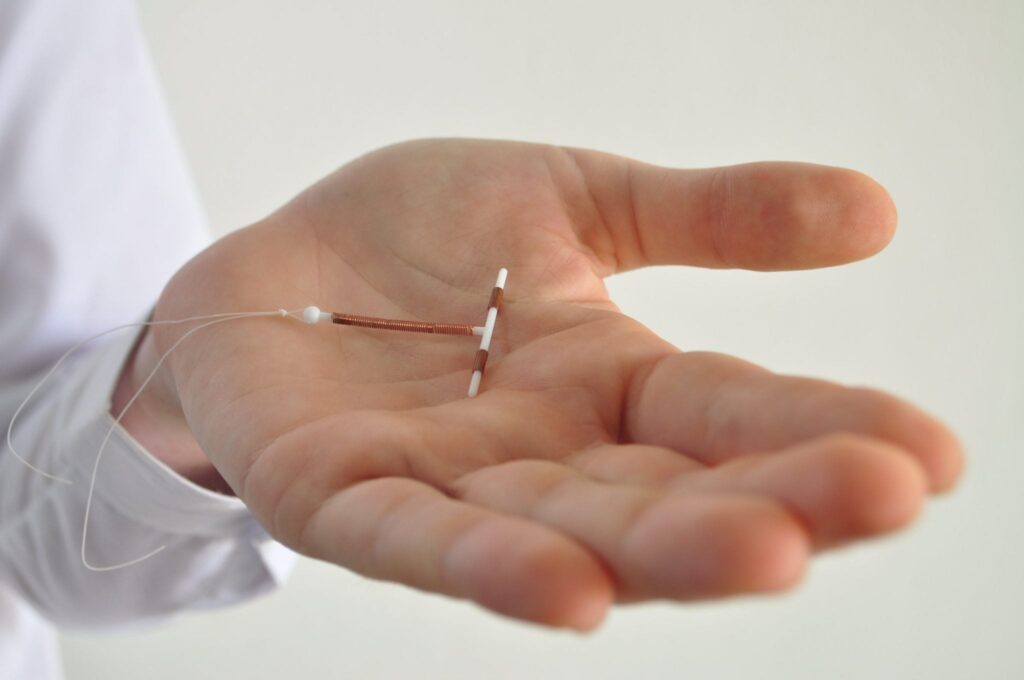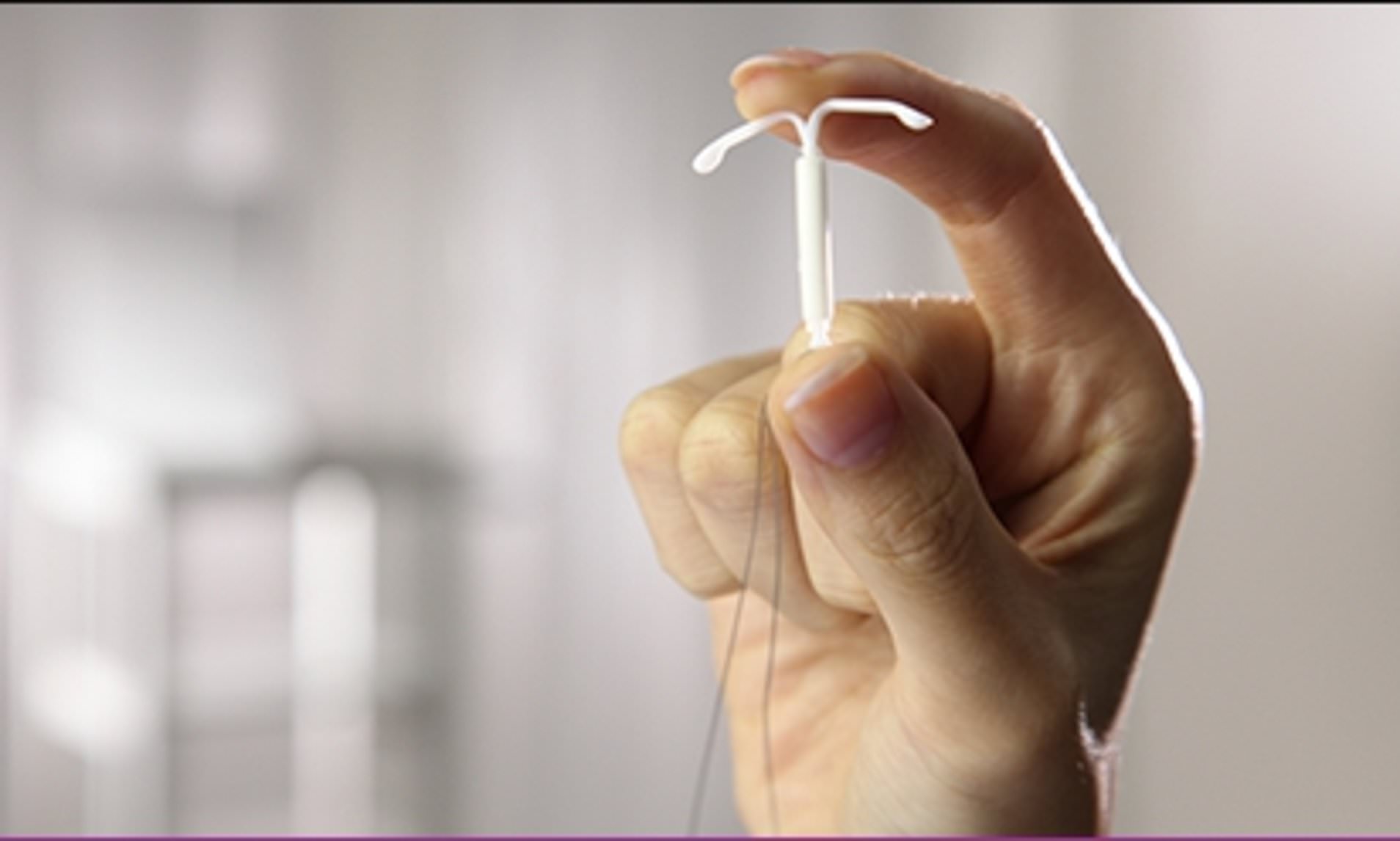The copper IUD (intrauterine device) is a popular form of long-acting, hormone-free birth control. It is praised for its effectiveness and convenience, and it is often chosen by those who want to avoid hormonal side effects. However, some users have reported unexpected changes after insertion, including concerns about unusual body odour or a metallic smell.
If you have recently had a copper IUD inserted and noticed a shift in how your body smells, you are not alone. While this is not a widely documented side effect in clinical literature, enough people have raised the issue online to make it worth a closer look. Could the copper in the IUD actually affect your body chemistry or pH balance? Or is the smell a sign of something else, such as an infection or hormonal change?
In this blog post, we will break down what is known (and what is not) about the copper IUD and changes in body odour. We will explore how the device works, what might cause a metallic or unpleasant scent, and when it is time to check in with a healthcare provider.
What Is the Copper IUD and How Does It Work?

The copper IUD, also known by its brand name Paragard, is a small, T-shaped device that a healthcare provider inserts into the uterus to prevent pregnancy. It is made of flexible plastic and wrapped with a thin layer of copper wire. Unlike hormonal birth control methods, the copper IUD contains no synthetic hormones.
So, how does it work? Copper is toxic to sperm. Once inserted, the device continuously releases small amounts of copper into the uterus. This creates an environment that is inhospitable to sperm by affecting how they move and preventing them from reaching and fertilizing an egg. If sperm can’t reach the egg, pregnancy can’t occur.
Recommended: What Early Symptoms Might Signal a Failed IUD?
The copper IUD is over 99% effective and can provide protection for up to 10 years, though it can be removed at any time if pregnancy is desired or if any side effects occur. Since it does not rely on hormones, many people choose it to avoid hormonal side effects such as mood changes, weight gain, or acne.
Common Side Effects of the Copper IUD
While the copper IUD is a safe and effective form of birth control for many people, it can come with some side effects, especially in the first few months after insertion. Here are the most commonly reported ones:
- Heavier menstrual bleeding, especially in the first few months after insertion
- Longer periods than usual
- More intense menstrual cramps (dysmenorrhea)
- Spotting between periods, particularly during the first 3–6 months
- Pelvic discomfort or cramping, especially soon after insertion
- Mild back pain
- Increased vaginal discharge (usually clear or white and not foul-smelling)
- Expulsion of the IUD (the device may partially or fully come out, especially in the first year)
- Perforation of the uterus (a rare but serious complication during insertion)
- Temporary dizziness or fainting immediately after insertion
Can the Copper IUD Cause Body Odour or a Metallic Smell?
While the copper IUD is a hormone-free contraceptive option, some users have reported experiencing a metallic or copper-like scent after insertion. This phenomenon is not officially documented in medical literature as a side effect of the device. However, anecdotal reports suggest that the presence of copper in the IUD may influence body odour, particularly during menstruation or sexual activity.
Recommended: Should I Inform My Doctor if My IUD Was Dislodged Even if I’m Not Sexually Active?
The metallic smell may be linked to the presence of copper ions released by the IUD, which can interact with bodily fluids. Additionally, menstrual blood contains iron, which can produce a metallic scent. Changes in vaginal pH or bacterial flora, potentially influenced by the IUD, might also contribute to altered body odour. It’s important to note that such odour changes are typically not associated with infections like bacterial vaginosis, which often present with distinct symptoms such as a fishy odour or unusual discharge.
If you notice a persistent or unpleasant odour after IUD insertion, it’s advisable to consult a healthcare provider. While the copper IUD itself is not known to cause infections, any new or unusual symptoms should be evaluated to rule out other underlying causes. In some cases, users have found relief from odour changes through treatments like boric acid suppositories or by removing the IUD, though these measures should be discussed with a healthcare professional.
Is a Metallic Smell a Real Symptom?

Some people with a copper IUD report noticing a strange metallic or “penny-like” smell, particularly from their vaginal area or general body odor. This scent is often described as sharp or similar to iron, which naturally raises concerns. While it can feel alarming, it’s important to understand what might actually be causing it.
Recommended: Is the Copper IUD Better for Heavy Periods?
The copper IUD itself releases small amounts of copper into the uterus to prevent pregnancy. Copper is a metal, but it isn’t known to produce a noticeable smell inside the body. There is currently no scientific evidence linking copper IUDs directly to a metallic body odor. However, changes in menstrual flow or vaginal pH after insertion could contribute to differences in smell that some people interpret as metallic.
A metallic odor can also come from other sources. Heavier periods, which are a common side effect of copper IUDs, can lead to a stronger scent due to the iron content in blood. Other possible causes include bacterial vaginosis, changes in hygiene habits, diet, or medications such as iron supplements.
If the smell is persistent, unpleasant, or accompanied by other symptoms like itching, irritation, or unusual discharge, it’s best to talk to a healthcare provider. These could be signs of an infection or another condition unrelated to the IUD. It’s always a good idea to check in if something about your body feels off.
Should You Remove Your Copper IUD Over This?
If you’re experiencing a metallic or unusual body odor after getting a copper IUD, it’s understandable to be concerned. While this isn’t a widely recognized side effect in medical literature, some users have reported similar experiences. However, before considering removal, it’s important to explore other potential causes and solutions.
Consider Possible Causes
A metallic smell could be linked to increased menstrual bleeding, which is a known side effect of the copper IUD. Blood contains iron, which can produce a metallic scent. Additionally, changes in vaginal pH or bacterial balance due to the presence of the IUD might contribute to altered body odor. It’s also worth noting that some individuals have reported this symptom subsiding over time without the need for removal.
Recommended: What Are Common Side Effects People Experience When Switching Between Combined Birth Control Pill and Mini Pill?
Consult a Healthcare Provider
It’s advisable to consult with a healthcare provider to rule out other potential causes, such as infections like bacterial vaginosis. They can perform appropriate tests and provide guidance on whether the IUD is contributing to the odor. In some cases, treatments like boric acid suppositories have been reported to alleviate the symptom.
When to Consider Removal
If the odor persists despite medical consultation and treatment, and if it’s affecting your quality of life, removal of the IUD might be an option to discuss with your healthcare provider. Some individuals have found relief from such symptoms after removal, but this decision should be made in consultation with a medical professional.
Managing Body Odour Naturally While Using a Copper IUD
If you’ve noticed changes in body odour after getting a copper IUD, you’re not alone. While there’s no strong clinical link between copper IUDs and odour, some users report subtle shifts in how their body smells. Fortunately, there are natural and practical ways to manage this without resorting to harsh chemicals or making major lifestyle changes.
1. Prioritize Good Hygiene
Daily washing with warm water and a mild, unscented soap can help control odour without irritating the skin or disrupting the vaginal microbiome. Avoid using scented feminine washes or douches, as they can upset your natural balance and worsen odour.
Recommended: Is It True You’re Not Supposed to Use Menstrual Cups with IUDs?
2. Wear Breathable Fabrics
Choose underwear and clothing made from cotton or moisture-wicking materials. These fabrics allow your skin to breathe and reduce sweat buildup, which can contribute to unwanted smells. Changing clothes after sweating, especially during workouts, can also help.
3. Stay Hydrated and Eat Clean

What you eat can influence how your body smells. Drinking plenty of water helps flush out toxins. Reducing your intake of processed foods, red meat, and strong-smelling spices may also help. Some people find that eating more leafy greens and fresh fruits helps balance body odour over time.
4. Try Natural Deodorants or Alternatives
Aluminum-free deodorants made with baking soda, coconut oil, or essential oils can be effective without being harsh on sensitive skin. You can also try natural remedies like diluted apple cider vinegar, witch hazel, or lemon juice (applied carefully) to help neutralize odour-causing bacteria.
Recommended: Can Menstrual Cups Be Safely Used with Hormone-Based IUDs vs. Copper IUDs?
5. Support a Healthy Vaginal Environment
Probiotic-rich foods like yogurt, kefir, or fermented vegetables can support a healthy vaginal flora. A balanced microbiome can reduce the risk of bacterial vaginosis or yeast infections, which are common causes of odour. If needed, consider a vaginal probiotic supplement after speaking with your doctor.
6. Monitor Your Cycle and Symptoms
Track any changes in odour in relation to your menstrual cycle. Hormonal shifts or heavier bleeding caused by the copper IUD might temporarily affect your body’s scent. Keeping a journal can help you identify patterns and know when something might be off.
Conclusion
While some people report changes in body odour or a metallic smell after getting a copper IUD, there is currently no strong scientific evidence linking the IUD itself to these symptoms. However, individual experiences can vary, and factors like heavier periods, hormonal shifts, diet, and vaginal health may all contribute to subtle changes in how the body smells.
If you’re experiencing a persistent or unusual odour, it’s important not to jump to conclusions. It may be related to something completely unrelated to the IUD, such as an infection, dietary change, or even stress. Monitoring your symptoms and speaking with a healthcare provider can help identify the cause and guide you to the best solution.
